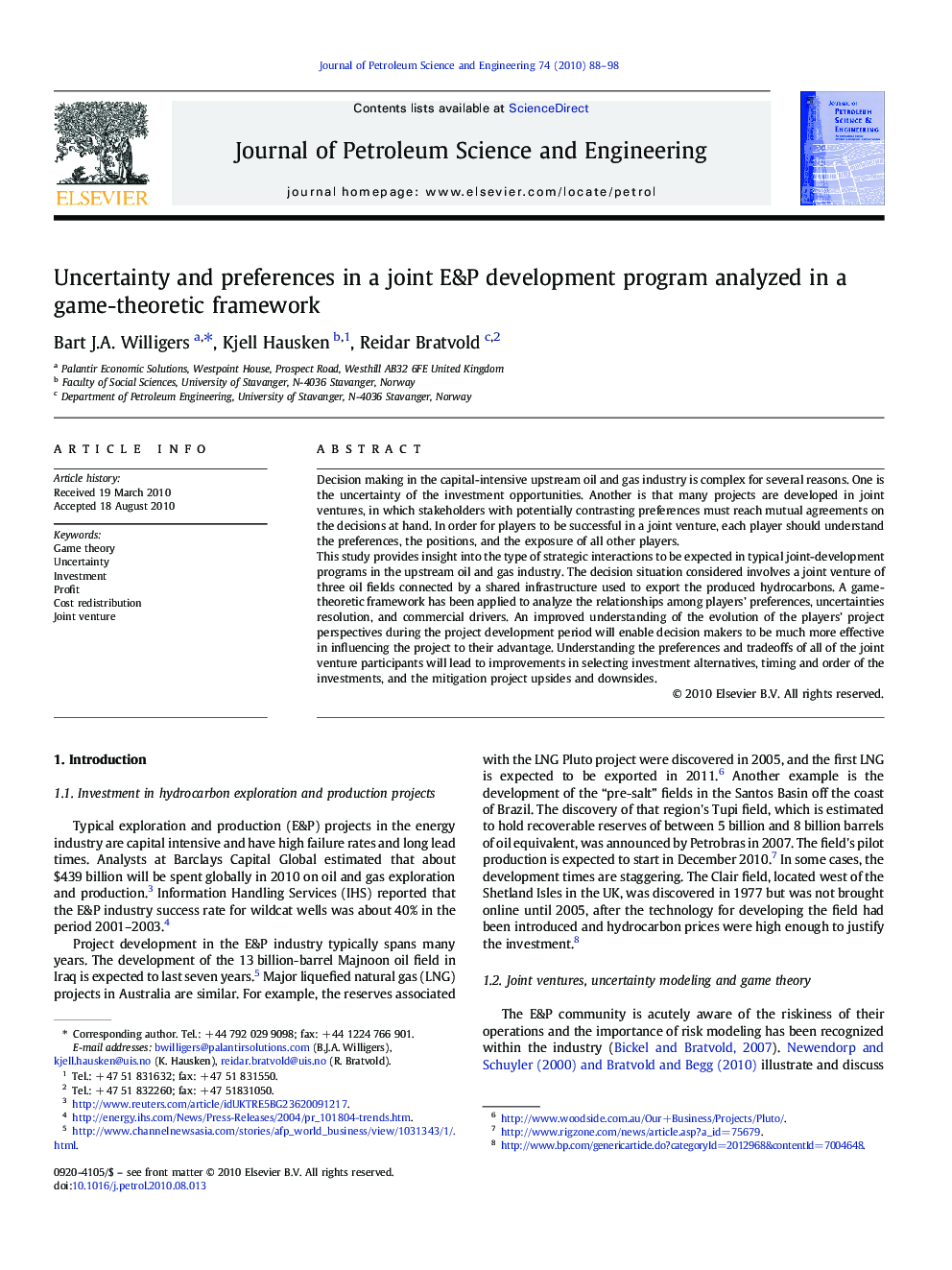| Article ID | Journal | Published Year | Pages | File Type |
|---|---|---|---|---|
| 1755804 | Journal of Petroleum Science and Engineering | 2010 | 11 Pages |
Decision making in the capital-intensive upstream oil and gas industry is complex for several reasons. One is the uncertainty of the investment opportunities. Another is that many projects are developed in joint ventures, in which stakeholders with potentially contrasting preferences must reach mutual agreements on the decisions at hand. In order for players to be successful in a joint venture, each player should understand the preferences, the positions, and the exposure of all other players.This study provides insight into the type of strategic interactions to be expected in typical joint-development programs in the upstream oil and gas industry. The decision situation considered involves a joint venture of three oil fields connected by a shared infrastructure used to export the produced hydrocarbons. A game-theoretic framework has been applied to analyze the relationships among players’ preferences, uncertainties resolution, and commercial drivers. An improved understanding of the evolution of the players’ project perspectives during the project development period will enable decision makers to be much more effective in influencing the project to their advantage. Understanding the preferences and tradeoffs of all of the joint venture participants will lead to improvements in selecting investment alternatives, timing and order of the investments, and the mitigation project upsides and downsides.
